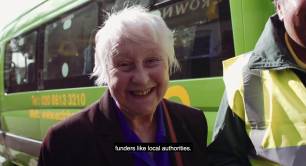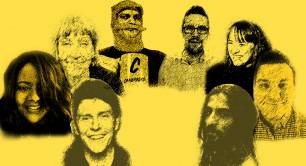Fit for the future: ‘Profit last’ and purpose first in times of crisis
What does it mean to build a healthy, resilient, sustainable organisation that’s able to do good and well at the same time? In this series, Buzzacott and Pioneers Post meet some of the stars of social enterprise and mission-driven business to talk about how to build a strong culture, how to find the right finance, how to navigate risk, and what it means to measure and manage impact.
Love podcasts? Don't miss out on ours! Catch up on all our podcasts and subscribe free on Apple Podcasts, Spotify or Soundcloud.
In this episode, hosts Tim West and Eddie Finch meet two social enterprise leaders: Anna Whitty MBE, who has been CEO at community transport charity ECT for more than 13 years, and Natalie Campbell, who began her stint as the CEO of ethical drinks business Belu Water just three weeks before the coronavirus lockdown was announced in March.
They have two very different perspectives on the crisis, but agree on the lessons to be learnt from it. ECT continued operating but diverted much of its activity towards delivering food parcels to families in need, and checking up on isolated and vulnerable people who were ‘shielding’. The business consolidated existing relationships and created new ones, gathering momentum while playing a key role in the community.
In contrast, Belu’s activity stalled as the hospitality industry ground to a halt, but Campbell used this pause as an opportunity. The team had the “gift of time”, she says, allowing them to pause and think about their strategy and mission in the long term – which led to a new purpose statement, new product development and new funding secured to scale up activity, as well as some changes announced since the podcast was recorded, including COO Charlotte Harrington becoming Campbell’s co-CEO.
For me, the turnover is irrelevant. What is important is the social value that we get out of what we do
Both businesses started the crisis from a solid financial position and enough cash reserves to weather the crisis at least for some time, which allowed them to continue to put mission first.
“At some point it was very unfashionable to have healthy reserves,” says Whitty, “and I’m hoping that will change for the future, because you just never know what’s around the corner. Because we had the reserves, it then gives you confidence to carry on, but that does not mean that’s an excuse to ignore certain situations.”
Both agree that seeking growth for the sake of it is not the way to go – no matter what, purpose must come first to remain sustainable.
“For the first time in 10 years, we’re not profitable,” says Campbell. “As a new CEO that’s a hard pill to swallow, but I’ve totally re-focussed everyone in the business, to think ‘profit last’ at the minute. It’s about understanding our purpose and moving forward.” Having a product which is best in class in terms of taste as well as sustainability is the best way to make sure that profit will return, she adds.
“I’m controversially against growth,” says Whitty. “I’ve had too much of the ‘my turnover is bigger than yours’ mentality. If you’re too focussed on growth – and I’ve experienced this – you forget about sustainability, you forget about the surplus or the profit if you are a social enterprise. For me, the turnover is irrelevant. What is important is the social value that we get out of what we do.”
Thanks for listening to our podcast. As somebody working in the impact economy, you'll know that producing quality work doesn't come free. We rely on paid subscriptions and partnerships to sustain our purpose-led journalism – so if you think it's worth having an independent, media platform to share your new and insight across the globe, please consider subscribing.




